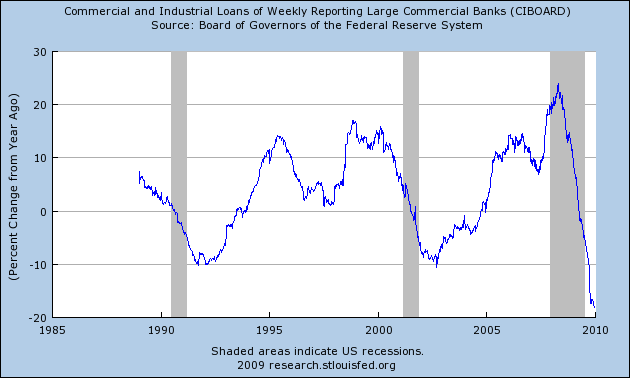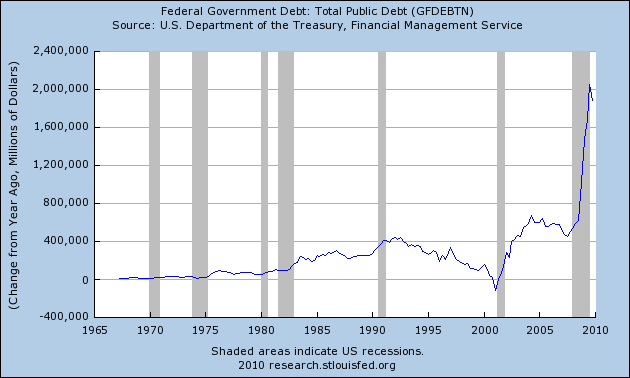Concerns about the current economic mess turning into another Great Depression seem to have faded. The consensus view of government officials and private economists seems to be that the economy, although still fragile, is well on its way to a robust recovery. According to Bloomberg,
Companies in the U.S. expanded in December at the fastest pace in almost four years, signaling the economic recovery is gaining speed heading into 2010.
The Institute for Supply Management-Chicago Inc. said today its barometer rose to 60, exceeding the most optimistic estimate of economists surveyed byBloomberg News and the highest level since January 2006. The gauge, in which readings greater than 50 signal expansion, showed companies boosted production and employment as orders climbed.
Stimulus programs and discounting have propelled a rebound in global sales that is reducing stockpiles, which may spur manufacturers to further increase production in coming months.
The world’s largest economy expanded at a 2.2 percent pace from July through September after a yearlong contraction that was the worst since the 1930s, figures from the Commerce Department showed last week. Economists surveyed byBloomberg forecast growth to pick up to a 3 percent pace in the fourth quarter and average 2.6 percent for all of 2010.
Predictions for a strong economic recovery seem to grow by the hour. Recent articles in the press lead one to believe that – unemployment has bottomed, the growth of foreign economies will result in greater demand for U.S. goods and services, inflation will remain subdued, the dollar has stabilized, a recovery in the housing market has started, mortgage rates will remain low, the bailed out banks are in full recovery mode, the Fed will gradually remove excess liquidity from the system, the politicians will get the deficit under control and the stock market will continue to post impressive gains.
Is the bullish consensus getting out of hand or will there be a few surprises on the path to a booming economy? One scenario that could shatter the dreams of the bulls is if private individuals and businesses are crowded out of the debt markets by a U.S. government that needs to borrow seemingly endless trillions of dollars. The latest data on private and governmental borrowing from the St Louis Federal Reserve show that crowding out could slam the brakes on an economic recovery. Businesses and individuals may be unable to borrow in strained capital markets or face much higher borrowing costs as they compete with the government for capital.
Lending by large commercial banks has plunged, a combination of tougher lending standards and reduced loan demand. Any economic recovery would result in increased loan demand by the private sector which strained capital markets may not be able to supply. Competition for funds could lead to a spike in interest rates.
As lending to the private sector has collapsed, government borrowing has exploded.
With no end in sight to new trillion dollar programs being passed by Congress, the financing needs of the U.S. Government are not likely to be reduced any time soon. The recovery of the U.S. economy that many foresee may come to a grinding halt if private sector borrowers are crowded out of the capital markets.

